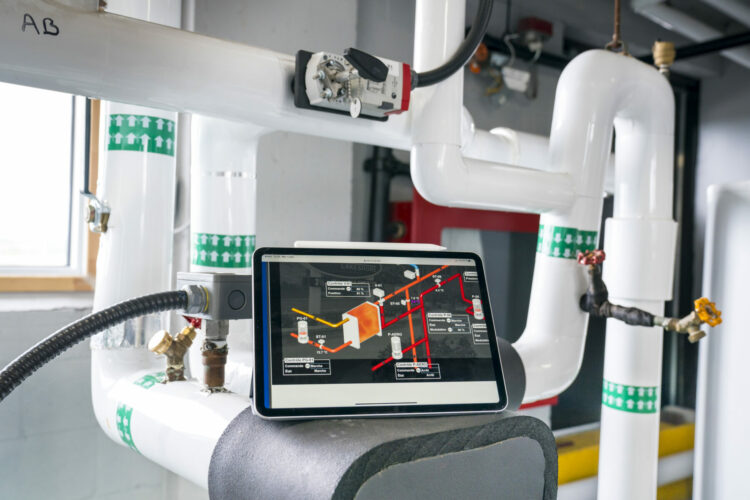“Machine Learning” as Applied to Building Mechanics – Part 2
Our digest of the ASHRAE podcast
Earlier this year, we shared ASHRAE’s podcast on machine learning and its implications for building mechanics. Following this, we received several questions from our customers. Given that the podcast lasts over 43 minutes, we have taken care to provide you with a summary in both English and French.
The podcast “Machine Learning in HVAC Applications”, published with the expertise of Michael Berger, highlights the growing importance of machine learning (ML) in modernising HVAC systems, maximising their energy efficiency and reliability, while paving the way for smarter building management.
Here’s our summary :
The Potential Benefits of “Machine Learning”
- Optimise HVAC systems and reduce energy consumption.
- Be more efficient through task automation, improving the efficiency of solution development and deployment.
- Improve predictive maintenance by identifying potential equipment failures before they become critical.
- Adjust control strategies in real time, considering the specific characteristics of each site.
The Challenges of Predictive “Machine Learning”
- Analysis of operational trade-offs:
Determine which equipment should be in operation based on requirements:- Chiller or cooling tower?
- Chiller or condenser pumps?
- Predict the outlet temperature of a cooling tower based on the outside temperature and load.
- Main concerns:
The risk that machine learning may not be suitable for certain HVAC applications.
Supervised learning
- Learn equipment performance.
- Predict cooling requirements based on various parameters:
- Material characteristics (manufacturing, wall thickness, etc.).
- Number of rooms, weather conditions and load patterns.
- Integrate these learnings into an optimisation framework.
Examples of “Machine Learning” Applications in Building Mechanics
- Optimal control strategies:
- Compare the operations of the chiller, cooling tower and AHU fans to optimise their performance.
- Determine the optimal number of chillers in operation in a chiller plant.
- Predictive maintenance:
- Collect data from the cooling plant to predict actual energy consumption compared to predicted consumption.
- Develop a generic model, adjustable to specific sites.
- Autonomous learning:
- Clean data by eliminating problems caused by sensors or communication issues.
- Semantic modelling:
- Identify data types to detect equipment and data points.
- Learn from human responses (experience).
The Steps for Developing a “Machine Learning” (ML) Solution
- Research and validation of models using real data.
- Prototype creation: offline testing on PCs to validate initial hypotheses.
- Testing on target hardware to assess viability and implementation time.
- Onsite trials and verification studies conducted by third parties.
The Keys to Success for a “ML” Solution in Building Management
- Flexibility: The solution must be adaptable to multiple scenarios.
- User interface:
- Simplify error diagnosis without impacting other features.
- Display the reasons for AI corrective actions and allow optimizations to be disabled without affecting others.
- Involvement of building managers: They must be actively involved, particularly during data collection.
This summary highlights the importance of machine learning for the HVAC sector, offering solutions for energy optimization, maintenance and efficient system management.
Want more? Here is the link to the ASHREA Journal Podcast and here is the first part of our article on Machine Learning.
About BAULNE
BAULNE is a Québec-based company that specializes in building mechanics and integrated HVAC solutions for over 20 years. As a leader in the sector, it supports building managers and operations directors with its expertise in design-build, maintenance, energy efficiency, and smart technologies. With a multidisciplinary team of over 70 professionals, BAULNE strives for excellence with a clear mission: to make users, administrators, and owners happy in their environment.
Discover our areas of expertise:
Our HVAC services
Custom-made Design-build
Proactive HVAC maintenance
Energy optimization and subsidies
Caring for people and buildings.




